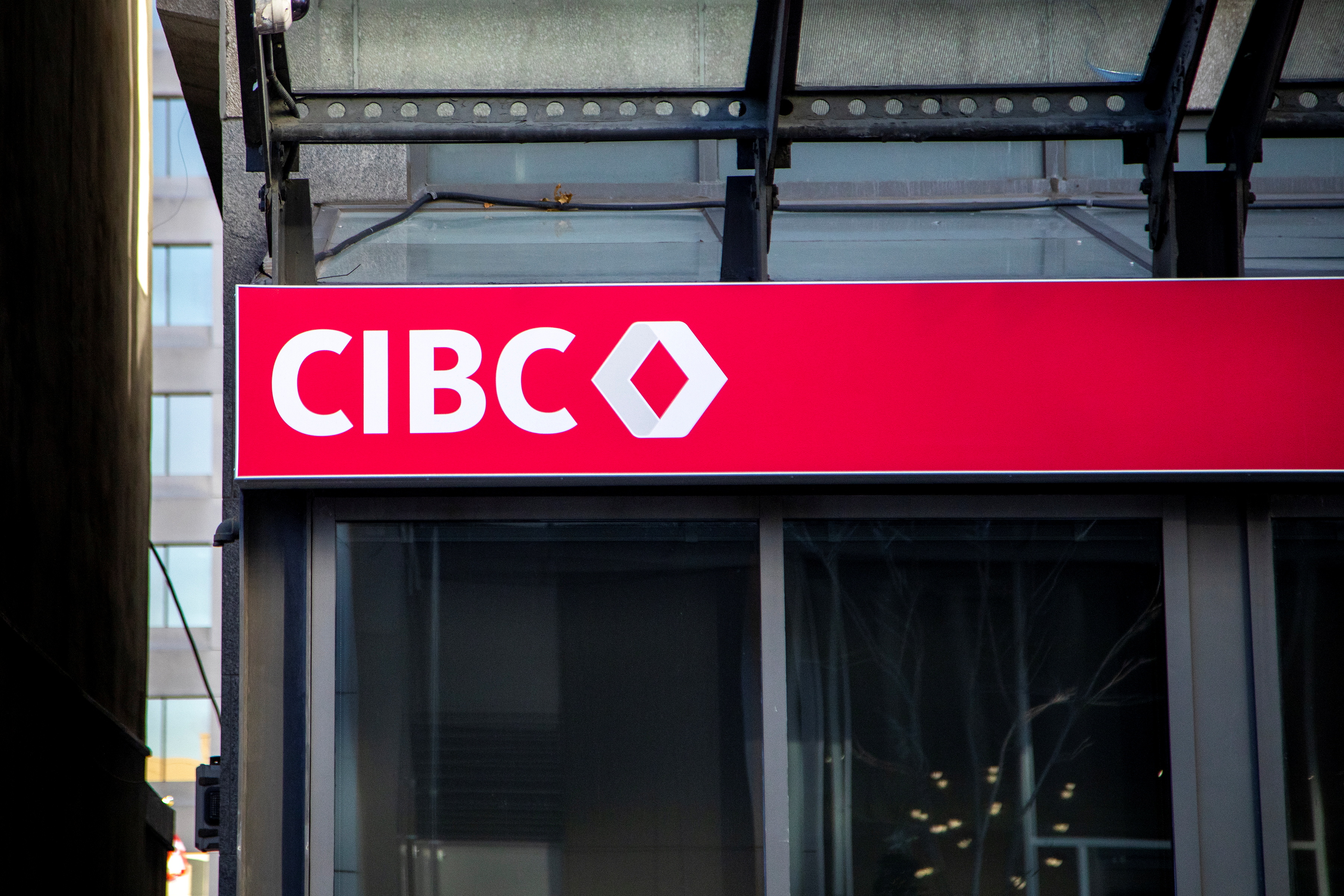[ad_1]

A sign for the The Canadian Imperial Bank of Commerce (CIBC) in Toronto, Ontario, Canada December 13, 2021. REUTERS/Carlos Osorio Acquire Licensing Rights
Aug 31 (Reuters) – Canadian Imperial Bank of Commerce (CIBC) (CM.TO) said on Thursday it would reduce its focus on U.S. commercial real estate due to weakness in that business, as the lender missed earnings forecasts due to a jump in bad loan provisions.
Shares in CIBC, the last of the big six Canadian banks to report third quarter results, fell as much as 3.6% as it joined bigger rivals in guarding against potentially sour loans, a factor that is dragging on earnings across the sector.
CIBC blamed soft U.S. real estate and construction sectors and high interest rates for its three-fold jump in bad loan provisions to C$736 million ($544 million).
“Where we are seeing the issues is in commercial real estate and in particular, in the institutional office space,” said Shawn Beber, the bank’s head of U.S. operations.
“It’s a part of the business we’re deemphasizing. And as that transition continues, you’ll see (commercial real estate) wind up being a smaller percentage of the overall U.S. portfolio as our commercial and industrial and our wealth businesses continue to grow,” Beber told analysts.
The U.S. office portfolio represents less than 1% of CIBC’s overall loan book and 20% of overall U.S. commercial real estate.
CIBC’s peers TD Bank (TD.TO), Bank of Montreal (BMO.TO), Bank of Nova Scotia (BNS.TO) and National Bank (NA.TO) missed quarterly profit estimates earlier in the week, also weighed down by higher provisions. Royal Bank of Canada (RY.TO) was the only big bank to beat profit estimates, but its CEO warned of a softer economy ahead and plans to cut about 1,800 jobs.
The Canadian central bank’s 10 interest rate hikes since last year have made it challenging for consumers to repay their mortgages at a time when the costs of living are also rising for other reasons.
Investors are now bracing for more challenges ahead as some banking executives highlighted an uncertain macroeconomic environment amid higher interest rates and inflation, geopolitical events and slower economic growth.
“That’s the number one theme … The big increases in credit loss provisions,” said Brian Madden, chief investment officer at First Avenue Investment Counsel.
Rising interest rates have helped banks earn more from lending by charging borrowers more on loans, but also pushed banks to start bracing for potentially more loan defaults.
“It appears that higher interest rates for longer may be the primary culprit,” RBC analyst Darko Mihelic said.
CIBC reported adjusted net income of C$1.47 billion, or C$1.52 per share, in the three months ended July 31, compared with C$1.72 billion, or C$1.85 apiece, a year earlier.
Analysts were expecting C$1.68 per share, according to Refinitiv IBES data.
($1 = 1.3535 Canadian dollars)
Reporting by Nivedita Balu in Toronto and Pritam Biswas in Bengaluru; Editing by David Holmes and Mark Potter
Our Standards: The Thomson Reuters Trust Principles.
[ad_2]
Source link
